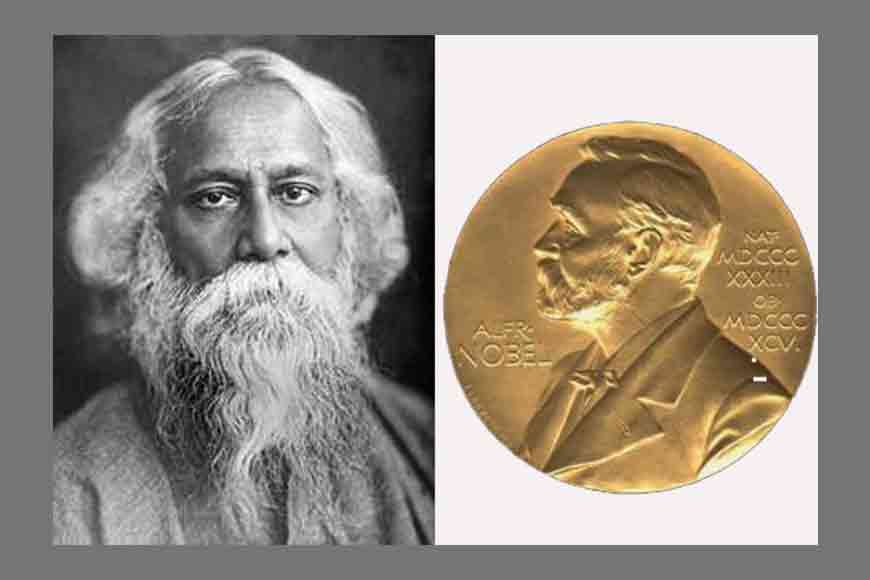Today is the day when Rabindranath Tagore won Nobel Prize

Come winter and the Sal and Piyal trees of Birbhum start shedding their leaves, a phenomenon often captured on an artist’s canvas, but more so in Rabindranath Tagore’s poetry. Pata Jharanor Shomoy Hoyechhe Shuru (the time has begun for shedding of leaves) probably starts off from November. Tagore in all his sensitivities, related this shedding of worn out leaves to the gradual decline in the life force of a human journey. He was deeply attached to the forests around Santiniketan and to the trees. No wonder, Tagore received the news of winning the Nobel Prize while he was touring the Chaupahari Forest with his son Rathindranath Tagore and a few foreign visitors who had come to see his school in Santiniketan. It was a mid-November afternoon.
But it was not just the ambience that made declaration of such a news exciting, rather the news itself was history, for Rabindranath Tagore happened to be the first non-white and non-European to have won the Nobel Prize in Literature, beating stalwarts like Anatole France and Thomas Hardy, who were well-known by then in the international literary world. Tagore on the contrary was a non-entity. But how did he accept such a big news? His friend Rothenstein had already told Tagore that Thomas Sturge Moore had sent his book Gitanjali to the Swedish Academy for consideration of the Nobel Prize. But the prospect of winning was so distant it hadn’t even entered his thoughts.
Just like most of the USA had no clue after the Twin Tower terror attack, where Afghanistan is, similarly Americans were quite astounded by the news. Though the British press published the news of Tagore’s Nobel Prize with a lot of enthusiasm, adding that he was ‘subject of the British Empire!’ the American press was quite scathing. A column written by Gordon Ray Young in Los Angeles Times was captioned as ‘The Ignoble Decision: Hindu Poet Unworthy of Nobel Prize.’ It read:“ The Nobel Prize for Literature has been awarded to a Hindu poet whose name few people can pronounce, with whose work fewer in America are familiar, and whose claim for that high distinction still fewer will recognise...”
However, his own country India, was overflowing with emotions and he received thousands of letters and good wishes, so much so that Tagore was tired in replying to them. However, he poured his heart out to his friend, Rothenstein, to whom he wrote a letter finally after three days of receiving the news of winning the Nobel Prize. He wrote: “The very first moment I received the message of the great honour conferred on me by the award of the Nobel Prize my heart turned towards you with love and gratitude. I felt certain that of all my friends none would be more glad at this news than you. But, all the same, it is a very great trial for me. The perfect whirlwind of public excitement it has given rise to is frightful. It is almost as bad as tying a tin can to a dog’s tail, making it impossible for him to move without creating noise and collecting crowds all along. I am being smothered with telegrams and letters for the last few days and people who have never read a line of my works are loudest in their protestations of joy. I cannot tell you how tired I am of all this shouting, the stupendous amount of its unreality being something appalling. Really, these people honour the honour in me and not myself...” To Rabindranath Tagore, the Nobel Prize was important, not for the value of popularity, pride, or success, rather for the money it would fetch that would help him to build his dream, Vishwa Bharati University in a big way catering to thousands of students as per his vision.
(Excerpt of letter taken from Daughters of Jorasanko by Aruna Chakravarti, HarperCollins India)









